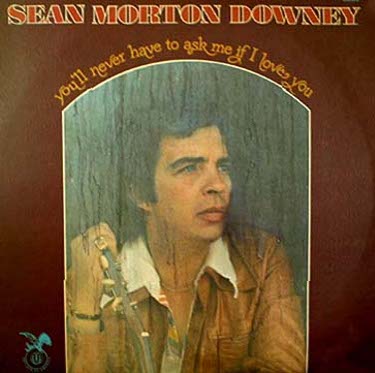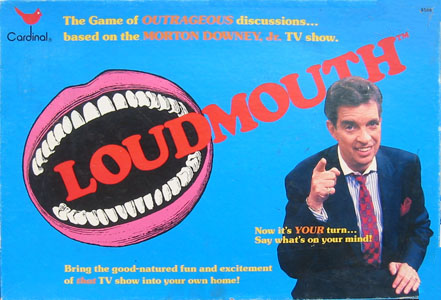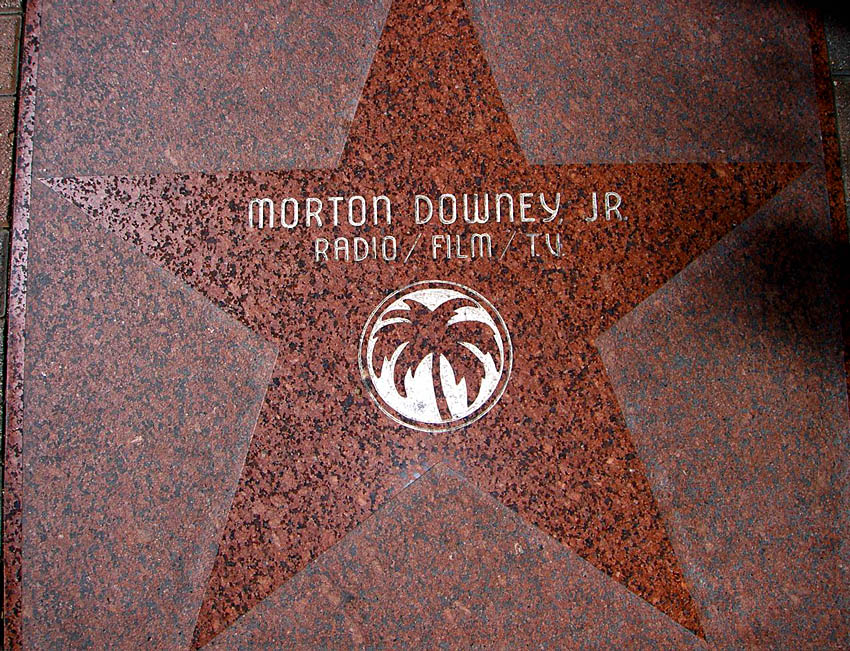The Morton Downey Jr. Story

Sean Morton Downey, Jr. was born on December 9, 1932. He was surrounded by fame and high society thanks to his famous parents Morton Downey Sr., the well know Irish crooner and radio star, and his mother actress Barbara Bennett.
Just like his father, Morton Downey Jr. became involved in the music and entertainment industries. Mort would write and later perform dozens of songs. One of his early hits as a performer was Boulevard Of Broken Dreams. That song gave Mort one of his first tastes of fame with a series of national TV appearance with Dick Clark, Jack Paar and others. Mort also played major roles in the production of the hit surf music era songs Pipeline and Wipeout. ![]()
 Mort would later focus his music talents on the world of country music. He hit the charts in the early 80's with the song Green Eyed Girl.
Mort would later focus his music talents on the world of country music. He hit the charts in the early 80's with the song Green Eyed Girl.
Before Mort became the infamous Loudmouth of TV talk shows, he was known as Doc Downey the DJ on stations including WPOP in Hartford, KAFY in Bakersfield, KDEO in San Diego and WFUN in Miami where he was the Number One rated DJ. Mort would leave radio and music behind in the late 60's for the world of Washington DC and politics. It was a departure that would prove to be a temporary one.
Listen to Mort on KDEO-AM from 1964
Mort's time in Washington saw him rise to become one of the most sought after and effective political activists and consultants. He spent time at the Justice Department working under then Attorney General Robert F. Kennedy. His work to demand answers from politicians led to national TV appearances during the 70's including the Phil Donahue Show. Mort developed professional friendships with powerful members of Congress including Sen. Howard Baker and Sen. Fritz Hollings.
It was during this time away from the radio microphone that Mort set off on a variety of careers and ventures. He would spend time in Africa, aid Biafran refugees, start an ABA basketball franchise in New Orleans, help found the WBO pro boxing organization and set up plans for a World Baseball League.
Mort's passion for politics and serving the people led him to run for the Demorcratic (you read that right!) Presidential nomination in 1979. In 1980 Mort was a candidate for the American Independent Party's Presidential nomination.
Morton Downey Jr. returned to radio in the early 80's but this time as a talk show host. His stops in Orlando, Chicago, Cleveland, San Francisco and Sacramento were when Mort developed his style of talk radio. While some called it confrontational Mort just considered it getting down to the nitty gritty. He made sure you knew where he stood on an issue and demanded the same from callers and guests alike.
Mort's desire to bring the truth to people inspired him have himself smuggled into the U.S. along with 43 illegal aliens from Mexico to show how porous the U.S. borders are. When Mort wanted to demonstrate that when police use stun guns they stop but don't paralyze criminals, he shot himself with one live on the air. Although it knocked him to the floor, two minutes later he continued his show.
This style and passion caught the attention of WWOR Channel 9 in New York City. Channel 9 had traditionally been bringing up the rear in the ratings and were developing a plan to change that. They had set off on a revamping of the station's entire schedule. Among their priorities was a prime time talk show that would get attention.
Morton Downey Jr. was their man.

![]() The Morton Downey Jr. Show premiered on October 19, 1987, the day the stock market dropped over 500 points. Almost instantly The Morton Downey Jr. Show had people watching and talking.
The Morton Downey Jr. Show premiered on October 19, 1987, the day the stock market dropped over 500 points. Almost instantly The Morton Downey Jr. Show had people watching and talking.
Although it was called "trash TV" by critics, The Morton Downey Jr. Show would regularly address topics and ideas that mattered to people in their day to day lives as well as in their concerns about America. Racism, the death penalty, abortion, the Gulf War, the Tawana Brawley story, the Guardian Angels, protecting your home and gun rights were just some of the topics Mort examined. If you sit down with one of Mort's shows today, you quickly realize that they presented the facts of issues still talked about and debated now.
Mort's retorts of "pablum puker" and "Zip it" to Liberals and those who crossed the line of fairness quickly became part of people's everyday conversations.
The Morton Downey Jr. Show achieved nationwide syndication on nearly 200 stations and increased the ratings on many affiliates by triple digit percentages. The success of The Morton Downey Jr. Show got Mort back into the recording studio to cut an album of songs that focused on his love of country and disdain for the evil doers in the world. The Morton Downey Jr. Show even inspired a board game.
Morton Downey Jr. also made a hit on the book shelf with his best selling Mort, Mort, Mort in 1989. His previous published works were Economic Effects Of Abortion On A Capitalistic Society in 1980 and Quiet Thoughts Make The Loudest Noise in 1970.
![]()
After The Morton Downey Jr. Show left the air in September of 1989 Mort moved to the cable network CNBC later that year and hosted a new weeknight show. Even though he called himself a more quiet and gentle Downey, the desire to get to the truth and even have a little fun along the way was still there.
Following his time at CNBC, Mort launched a new nationally syndicated talk show. Downey was produced in Southern California during 1994 and allowed him to work with his wife Lori in a blackout sketch that would open up each show. The half hour format let Mort focus on a single topic with his typical strong passion and emotion.
The 90's also saw Mort's work as an actor in films and television increase. Mort appeared in movies including Predator 2, Meet Wally Sparks, Revenge Of The Nerds 3 and Legal Tender. His television work included The Rockford Files movie, Diagnosis Murder, Tales From The Crypt, Saturday Night Live and Monsters.
Like every celebrity, Morton Downey Jr. had his trademark. When Mort got into your face you didn't know if you would get a piece of his mind or a face full of his cigarette smoke. Tragically, that trademark would be his downfall.
Mort was diagnosed with lung cancer and underwent surgery in 1996. Even though a medical mistake cost him his windpipe, it didn't take away his desire to work or his love for life. Mort battled back from losing all but two thirds of one lung. He was making plans for new projects right up to his passing on March 12, 2001.
Listen to Mort's final media appearance just months before his passing.

You decide who was sensationalistic and who was bringing important issues to the people of America.
